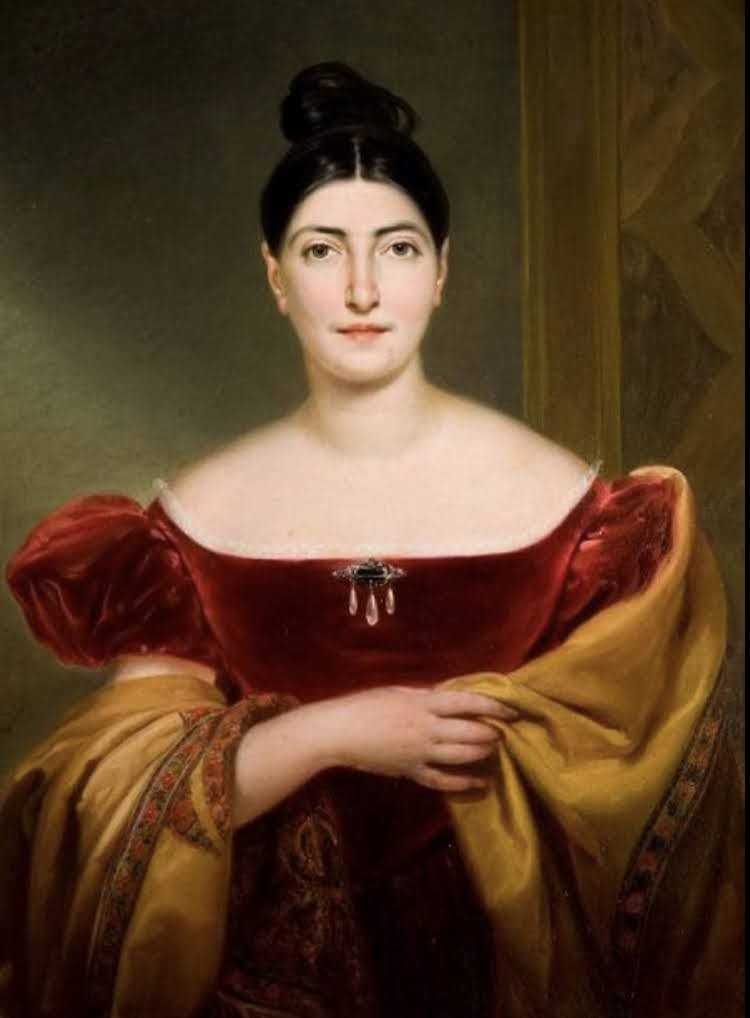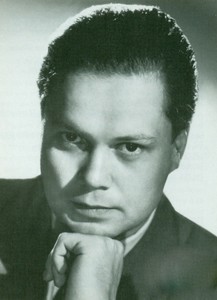
Giuditta Pasta |
Giuditta Pasta
Rave reviews about Giuditta Pasta, whom V.V. Stasov called “brilliant Italian”, the pages of the theatrical press from different countries of Europe were full of. And this is not surprising, because Pasta is one of the outstanding singer-actresses of her time. She was called “the only one”, “inimitable”. Bellini said of Pasta: “She sings so that tears blur her eyes; She even made me cry.
The famous French critic Castile-Blaz wrote: “Who is this sorceress with a voice full of pathos and brilliance, performing Rossini’s young creations with the same strength and captivatingness, as well as old-school arias imbued with grandeur and simplicity? Who, dressed in the armor of a knight and graceful outfits of queens, appears to us in turn now as the charming beloved of Othello, now as the chivalrous hero of Syracuse? Who united the talent of a virtuoso and a tragedian in such amazing harmony, captivating with a game full of energy, naturalness and feeling, even capable of remaining indifferent to melodic sounds? Who more admires us with the precious quality of his nature – obedience to the laws of strict style and the charm of a beautiful appearance, harmoniously combined with the charm of a magical voice? Who doubly dominates the lyrical stage, causing illusions and envy, filling the soul with noble admiration and torments of pleasure? This is Pasta… She is familiar to everyone, and her name irresistibly attracts lovers of dramatic music.”
Giuditta Pasta (née Negri) was born on April 9, 1798 in Sartano, near Milan. Already in childhood, she successfully studied under the guidance of the organist Bartolomeo Lotti. When Giuditta was fifteen years old, she entered the Milan Conservatory. Here Pasta studied with Bonifacio Asiolo for two years. But the love of the opera house won. Giuditta, leaving the conservatory, first participates in amateur performances. Then she enters the professional stage, performing in Brescia, Parma and Livorno.
Her debut on the professional stage was not successful. In 1816, she decided to conquer the foreign public and went to Paris. Her performances at the Italian Opera, where Catalani reigned supreme at the time, went unnoticed. In the same year, Pasta, together with her husband Giuseppe, also a singer, undertook a trip to London. In January 1817, she sang for the first time at the Royal Theater in Cimarosa’s Penélope. But neither this nor other operas brought her success.
But failure only spurred Giuditta. “Having returned to his homeland,” writes V.V. Timokhin, – with the help of the teacher Giuseppe Scappa, she began to work on her voice with exceptional persistence, trying to give it maximum brightness and mobility, to achieve evenness of sound, without leaving at the same time a painstaking study of the dramatic side of opera parts.
And her work was not in vain – starting from 1818, the viewer could see the new Pasta, ready to conquer Europe with her art. Her performances in Venice, Rome and Milan were successful. In the autumn of 1821, the Parisians listened with great interest to the singer. But, perhaps, the beginning of a new era – the “era of Pasta” – was her significant performance in Verona in 1822.
“The voice of the artist, quivering and passionate, distinguished by exceptional strength and density of sound, combined with excellent technique and soulful stage acting, made a huge impression,” writes V.V. Timokhin. – Shortly after returning to Paris, Pasta was proclaimed the first singer-actress of her time …
… As soon as the listeners were distracted from these comparisons and began to follow the development of the action on the stage, where they saw not the same artist with monotonous methods of playing, only changing one costume for another, but the fiery hero Tancred (Rossini’s Tancred), the formidable Medea (“Medea” by Cherubini), the gentle Romeo (“Romeo and Juliet” by Zingarelli), even the most inveterate conservatives expressed their sincere delight.
With particular touching and lyricism, Pasta performed the part of Desdemona (Othello by Rossini), to which she then returned repeatedly, each time making significant changes that testified to the singer’s tireless self-improvement, her desire to deeply understand and truthfully convey the character of Shakespeare’s heroine.
The great sixty-year-old tragic poet Francois Joseph Talma, who heard the singer, said. “Madame, you have fulfilled my dream, my ideal. You have the secrets that I have persistently and ceaselessly sought since the beginning of my theatrical career, ever since I consider the ability to touch hearts the highest goal of art.
From 1824 Pasta also performed in London for three years. In the capital of England, Giuditta found as many ardent admirers as in France.
For four years, the singer remained a soloist with the Italian Opera in Paris. But there was a quarrel with the famous composer and director of the theater, Gioacchino Rossini, in whose numerous operas she performed so successfully. Pasta was forced in 1827 to leave the capital of France.
Thanks to this event, numerous foreign listeners were able to get acquainted with the skill of Pasta. Finally, in the early 30s, Italy recognized the artist as the first dramatic singer of her time. A complete triumph awaited Giuditta in Trieste, Bologna, Verona, Milan.
Another famous composer, Vincenzo Bellini, turned out to be an ardent admirer of the artist’s talent. In her person, Bellini found a brilliant performer of the roles of Norma and Amina in the operas Norma and La sonnambula. Despite the large number of skeptics, Pasta, who created fame for herself by interpreting heroic characters in Rossini’s operatic works, managed to say her weighty word in the interpretation of Bellini’s gentle, melancholy style.
In the summer of 1833, the singer visited London with Bellini. Giuditta Pasta outdid herself in Norma. Her success in this role was higher than in all previous roles performed by the singer before. The public’s enthusiasm was boundless. Her husband, Giuseppe Pasta, wrote to his mother-in-law: “Thanks to the fact that I convinced Laporte to provide more rehearsals, and also thanks to the fact that Bellini himself directed the choir and orchestra, the opera was prepared like no other Italian repertoire in London, therefore her success exceeded all the expectations of Giuditta and the hopes of Bellini. In the course of the performance, “many tears were shed, and extraordinary applause erupted in the second act. Giuditta seemed to have completely reincarnated as her heroine and sang with such enthusiasm, which she is only capable of when she is prompted to do so by some extraordinary reason. In the same letter to Giuditta’s mother, Pasta Bellini confirms in a postscript everything that her husband said: “Yesterday your Giuditta delighted everyone who was present at the theater to tears, I have never seen her so great, so incredible, so inspired…”
In 1833/34, Pasta sang again in Paris – in Othello, La sonnambula and Anne Boleyn. “For the first time, the public felt that the artist would not have to stay on stage for long without damaging her high reputation,” writes V.V. Timokhin. – Her voice has significantly faded, lost its former freshness and strength, intonation became very uncertain, individual episodes, and sometimes the whole party, Pasta often sang half a tone, or even a tone lower. But as an actress, she continued to improve. The Parisians were especially struck by the art of impersonation, which the artist mastered, and the extraordinary persuasiveness with which she conveyed the characters of the gentle, charming Amina and the majestic, tragic Anne Boleyn.
In 1837, Pasta, after performing in England, temporarily retires from stage activities and lives mainly in his own villa on the shores of Lake Como. Back in 1827, Giuditta bought in Blevio, in a tiny place on the other side of the lake, the Villa Rhoda, which once belonged to the richest dressmaker, Empress Josephine, Napoleon’s first wife. The uncle of the singer, engineer Ferranti, advised to buy a villa and restore it. The next summer, Pasta already came there to rest. Villa Roda was truly a piece of paradise, “bliss”, as the Milanese used to say then. Lined on the facade with white marble in a strict classical style, the mansion stood on the very shore of the lake. Famous musicians and opera lovers flocked here from all over Italy and from abroad to personally testify to their respect for the first dramatic talent in Europe.
Many have already gotten used to the idea that the singer finally left the stage, but in the 1840/41 season, Pasta again tours. This time she visited Vienna, Berlin, Warsaw and met with a wonderful reception everywhere. Then there were her concerts in Russia: in St. Petersburg (November 1840) and in Moscow (January-February 1841). Of course, by that time Pasta’s opportunities as a singer were limited, but the Russian press could not fail to note her excellent acting skills, expressiveness and emotionality of the game.
Interestingly, the tour in Russia was not the last in the artistic life of the singer. Only ten years later, she finally ended her brilliant career, performing in London in 1850 with one of her favorite students in opera excerpts.
Pasta died fifteen years later at her villa in Blavio on April 1, 1865.
Among the numerous roles of Pasta, criticism invariably singled out her performance of dramatic and heroic parts, such as Norma, Medea, Boleyn, Tancred, Desdemona. Pasta performed her best parts with special grandeur, calmness, plasticity. “In these roles, Pasta was grace itself,” writes one of the critics. “Her playing style, facial expressions, gestures were so ennobled, natural, graceful that every pose captivated her in itself, sharp facial features imprinted every feeling expressed by her voice …”. However, Pasta, the dramatic actress, by no means dominated Pasta the singer: she “never forgot to play at the expense of singing,” believing that “the singer should especially avoid increased body movements that interfere with singing and only spoil it.”
It was impossible not to admire the expressiveness and passion of Pasta’s singing. One of these listeners turned out to be the writer Stendhal: “Leaving the performance with the participation of Pasta, we, shocked, could not remember anything else filled with the same depth of feeling that the singer captivated us. It was futile to try to give a clear account of an impression so strong and so extraordinary. It is difficult to say right away what is the secret of its impact on the public. There is nothing extraordinary in the timbre of Pasta’s voice; it’s not even about his special mobility and rare volume; the only thing she admires and fascinates with is the simplicity of singing, coming from the heart, captivating and touching in a double measure even those viewers who have cried all their lives only because of money or orders.





